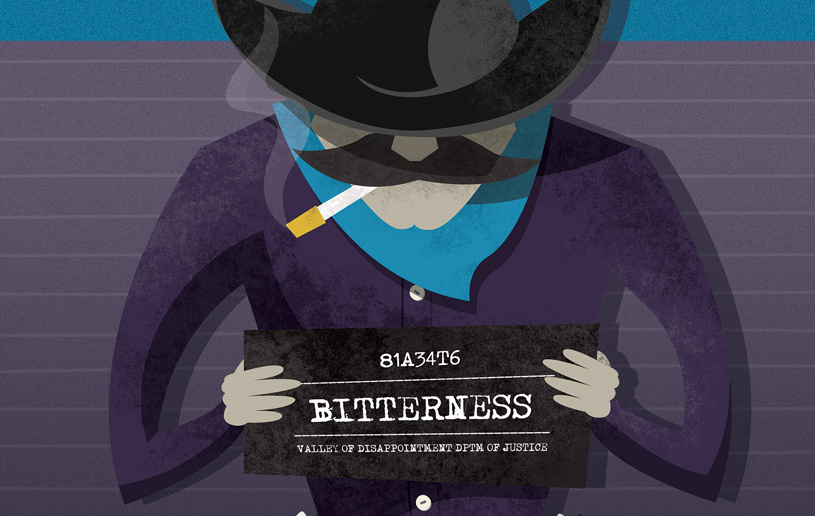
Recently I listened to a sermon on “the valley of disappointment.” This is a place we all travel through when we experience failure. How long we spend in the valley depends on what we encounter while we’re there.
In this valley, there are bandits called Bitterness, Withdrawal, and Fatalism. When we’re feeling down the bandits confront us over and over. The only way we can find a way out of the valley is to defeat the bandits without losing sight of who we are.
I listened to the sermon with eagerness—I love allegories—but was disappointed when it ended without telling me how to battle the bandits. It’s one thing to find yourself in the valley and see Bitterness and Withdrawal coming for you...but what do you do once you identify them?
Over the days and weeks following the sermon I’ve thought on this often. Many times I’ve encountered these bandits and been able to get out of the valley to varying degrees of success. But when I try to think of how I’ve done this I realize there’s no formula.
As I think through how I’ve dealt with disappointment I’ve pinpointed one common denominator, and am certain this is a key to defeating the bandits. To be victorious over bitterness, withdrawal, and fatalism the answer lies in who you are in Christ.
Christian culture uses the term “identity in Christ” often but I wonder if people understand what it actually means. Or maybe it’s one of those terms we’ve heard so many times it doesn’t register anymore.
At its simplest, to rest in your identity in Christ means you believe what God says about you. For example:
- I am loved by God and He lives in me (Galatians 2:20)
- I am complete in Christ (Colossians 2:10)
- I am chosen by God (Ephesians 3:4-6)
- I am justified through faith and through my faith I find peace (Romans 5:1)
- I am a new creation—my old life is gone (2 Corinthians 5:17)
- I am a child of God (John 1:12; Galatians 3:26)
- God works all things together for good (Romans 8:28)
- God does not treat me as my sins deserve (Psalm 103:10)
- God forgives my sins and redeems my life from the pit. He crowns me with love and compassion (Psalm 103:2-4; Matthew 26:28)
- God forgets my sins (Psalm 103:12; Hebrews 10:17)
I’ve known these truths my entire life. I am convinced I am a child of God and as such am loved, forgiven, and saved. But the moment trials strike I question who I am all over again. Somehow I forget what God says about me and begin to give in to the bandits. In these weakened moments I find myself acting out of shame, guilt, and anger.
In his sermon Enjoying the Rewards Chuck Swindoll says I can’t keep doing this, that God doesn’t suddenly stop being sovereign when bad things happen. “You must see the hand of God, you must view life vertically from His perspective or you will lose all drive to go on.” Chuck says the most common reaction during crisis is a horizontal one—to complain and to try to escape the truth of it. But what we need to do is embrace the pain and acknowledge God’s hand is in it.
It’s easy to get in a pattern of believing that faith in Christ means we won’t have any trouble or pain, but God doesn’t say that. In fact He says there will be trials (James 1:2). What we need to grasp is no matter what happens, God is in control. What we need to learn is what God says about who we are now in Christ. What we need to do is choose to believe it, regardless of how we feel, how we see ourselves, or how others view us. It is in this we will have the strength to find our way out of the valley of disappointment—by keeping our eyes focused on Christ and by believing what He says about us.

